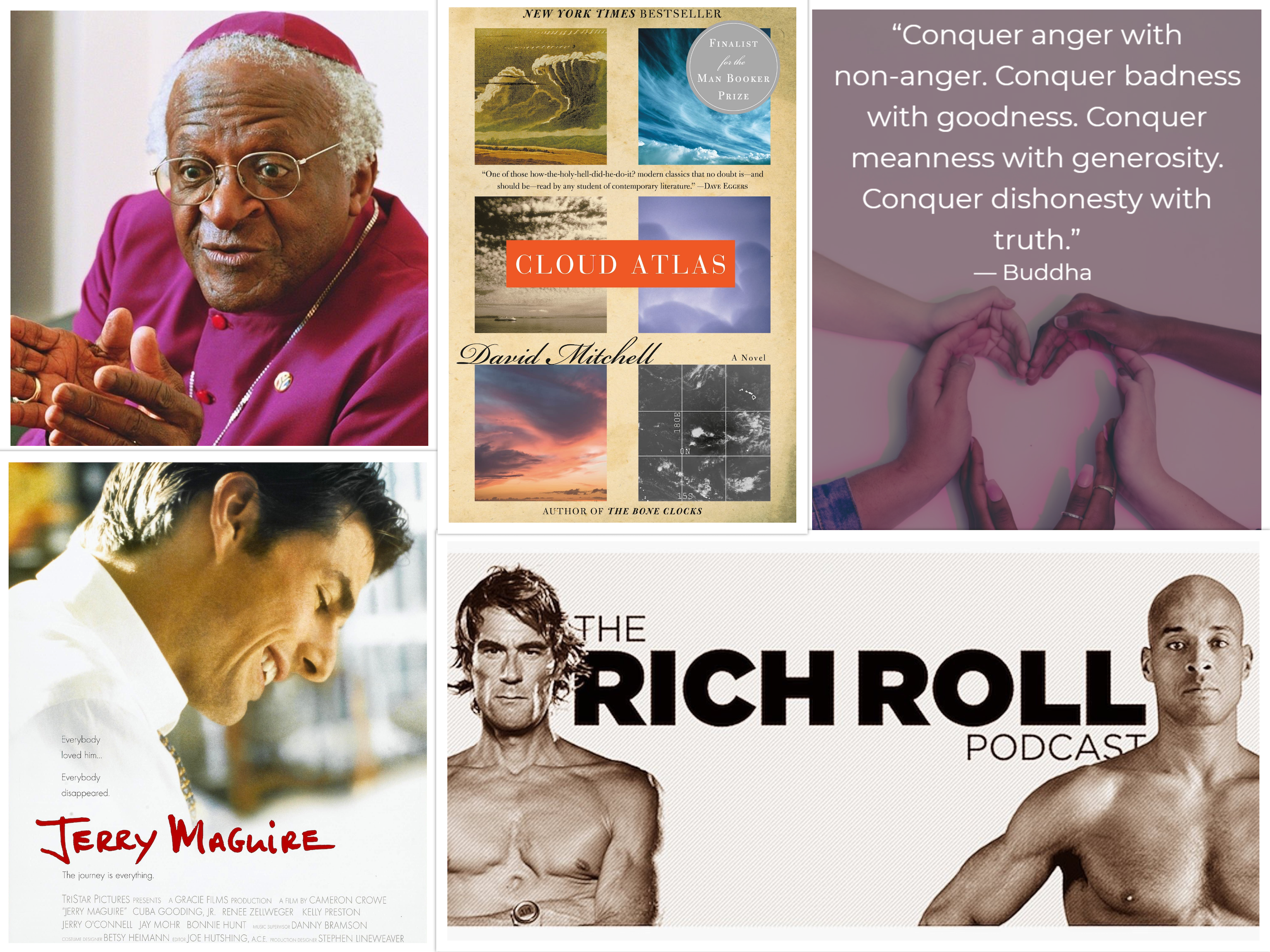Sunday Supplement #38 (January 30th, 2022)
Below is another Sunday Supplement with a quote worth sharing, a book worth reading, a movie worth watching, brainfood worth consuming, and a spiritual passage worth pondering.
I hope you take something away from these recommendations that enriches your week ahead!
Quote of the Week:
“No one is free who has not obtained the empire of himself. No man is free who cannot command himself.”
– Pythagoras
Book of the Week:
The Four Agreements – Don Miguel Ruiz
Don Miguel Ruiz was born to parents who belonged to the Toltecs of Mexico. Rather than follows his family’s footsteps in the traditions of the Toltecs, Miguel chose to attend medical school and become a surgeon.
However, after a near-death experience, Ruiz devoted himself to the mastery of the ancient ancestral wisdom of the Toltecs and later on decided to pass on the knowledge he learned.
The Four Agreements has spent over a decade on The New York Times bestseller list.
Ruiz’s personal growth/self-help book is a wonderful journey that explores the highest principles in the Toltec teachings.
The book breaks down and discusses the four agreements: be impeccable with your word, don’t take anything personally, don’t make assumptions, and always do your best. Ruiz explains each agreement and has other chapters that help introduce and support the teachings and how to apply them to everyday life.
There are elements of spirituality in the book that might not align with everyone’s practices, but the roots of the lessons Ruiz writes about can apply to everyone. Each agreement shows the reader a helpful way of viewing themselves and the world around them.
The Four Agreements is a short read but a powerful one. It’s well worth checking out.
Movie of the Week:
The 1989 film Dead Poets Society only won one Academy Award, but it is a movie that resonates beyond the year it came out.
The film follows maverick teacher John Keating, who takes the position of poetry teacher at an all-boys boarding school. The students at Welton Academy are expected to excel in their studies and become future lawyers and doctors. Keating encourages his students to pursue what fills them with joy, against the wishes of some parents and other faculty.
Robin Williams stars at John Keating. I’ve mentioned Williams’ work in Sunday Supplement #23 and Sunday Supplement #36, and a worthy movie list could include most of the late actor’s work.
In Dead Poets Society, Williams shines in one of his best roles. His improvisation skills are impeccable, and the film’s message is exemplified in his acting.
The film received four Oscar nominations, including Best Picture, Best Director, and Best Acting in a Leading Role. It only won for Best Writing – Screenplay Written Directly for the Screen but arguably should have won at least one more.
Check out the movie if it sounds like something you’d enjoy, and see what categories you think it should have won.
Brainfood of the Week:
Jordan Peterson’s interview on The Tim Ferriss Show
Jordan Peterson is a controversial figure in some circles, but his views on most subjects are worth a listen even if you end up not agreeing with him.
Peterson is a clinical psychologist, professor at the University of Toronto, and author of three bestselling self-help books and more than one hundred scientific papers that have transformed the modern understanding of personality.
I’ve highlighted five other Tim Ferriss interviews in the Sunday Supplements, and that is because I think he is one of the best hosts for the medium of interview podcasts.
Tim and Jordan discuss mythology, the Bible, mental health, and much more in this interview. One of my favorite parts of the interview is when Peterson challenges Ferriss’ views on psychedelics. This part of the interview raised valid points for both sides and exemplified a healthy way to debate.
There are many grains of wisdom in this interview, and with a grain of salt, there is a lot to learn from Jordan Peterson.
Closing Spiritual Passage:
“Let us examine our ways and test them, and let us return to the Lord.”
– Lamentations 3:40
I didn’t have the healthiest exposure to Christianity as a kid (Catholic school), but I’m happy to find dissect and learn from the teachings in the Bible years later. The nuggets of wisdom in the religions and spiritual practices of the world are amazing.
I’m reminded of the necessity and usefulness of reflecting on our practices and beliefs in this passage. And for the second part of the passage, I believe it represents returning to love.
When I combine the two statements, I’m left with contemplating my actions and seeing if they align with love.
I think many religions and spiritual practices can be disfigured their interpretations, but when I find verses like this one, I’m reminded of how much wisdom is between the lines.
Some of the Bible’s passages are simple and profound. This one helps me remember to reflect and make sure I’m aligned with love.
Allow your actions to come from a place of love, and have a blessed week ahead!
Comments closed



